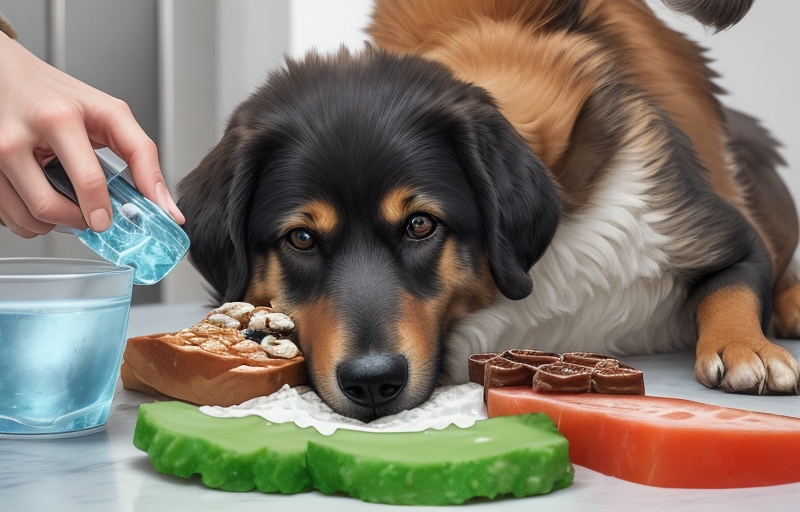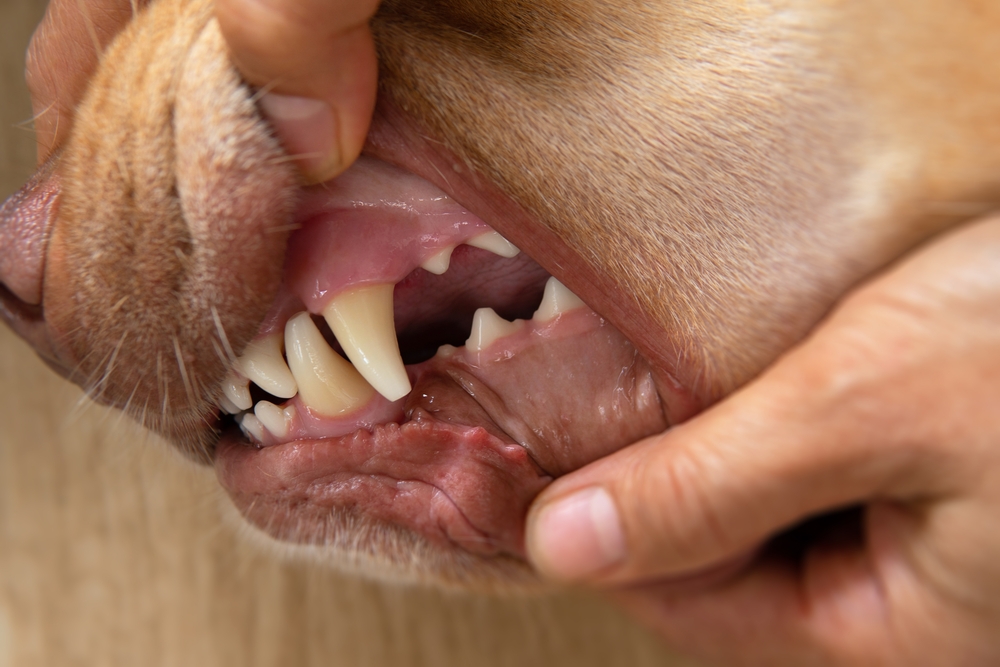Explore the common ”Causes of Tooth Fractures in Dogs”and learn effective strategies for prevention. This comprehensive article delves into the importance of dental care for your canine companion.
Introduction:
Dogs, known for their boundless energy and enthusiasm, may encounter dental issues, with tooth fractures being a prevalent concern. Understanding the causes and implementing preventive measures is crucial for maintaining your canine companion’s overall health. This article discusses the various reasons behind tooth fractures in dogs and provides essential strategies for prevention.
Causes of Tooth Fractures in Dogs:

1. Chewing on Hard Objects:
Dogs love to chew, but when their penchant for gnawing extends to hard objects like bones, antlers, or rocks, it increases the risk of tooth fractures. Brittle or excessively hard items can lead to cracked or broken teeth.
2. Trauma or Injury:
Accidents, falls, or any form of physical trauma can result in tooth fractures. Dogs are known for their playful nature, and roughhousing or accidental collisions can cause significant damage to their teeth.
3. Age-Related Issues:
As dogs age, their teeth may become more brittle and susceptible to fractures. Dental problems, such as weakened enamel or worn-out teeth, are common in senior dogs, making them more prone to fractures.
4. Untreated Dental Issues:
Poor dental hygiene and untreated dental problems, such as periodontal disease or tooth decay, can weaken the structure of the teeth. Weakened teeth are more likely to fracture, emphasizing the importance of regular dental check-ups for dogs.
5. Brachycephalic Breeds:
Dogs with short, flat skulls (brachycephalic breeds) such as Bulldogs, Pugs, and Boxers may be more prone to tooth fractures due to their unique jaw structures. The compacted nature of their mouths can result in misaligned teeth, increasing the risk of fractures.
6. Abrupt Temperature Changes:
Sudden exposure to extreme temperature changes, such as biting into something very cold or hard after being in a warm environment, can cause thermal stress on a dog’s teeth. This stress may lead to fractures, especially in breeds with thin enamel.
7. Tooth Decay and Cavities:
Poor dental hygiene can lead to the development of cavities and tooth decay in dogs. Decay weakens the tooth structure, making it more susceptible to fractures. Regular tooth brushing and professional cleanings are essential for preventing decay-related fractures.
8. Genetic Factors:

Some dogs may inherit genetic predispositions that make them more susceptible to dental issues, including fractures. Breeds with naturally weak enamel or poorly aligned teeth may require extra attention to prevent fractures.
9. Nutritional Deficiencies:
Inadequate nutrition can affect the strength of a dog’s teeth. A lack of essential vitamins and minerals, such as calcium and phosphorus, may lead to weakened teeth, increasing the likelihood of fractures. Ensure your dog’s diet is well-balanced and meets their nutritional needs.
10. Aggressive Chewing Habits:
Dogs that excessively chew on hard objects or exhibit aggressive chewing habits are at a higher risk of tooth fractures. This behavior can be exacerbated by anxiety, boredom, or a lack of appropriate outlets for chewing, emphasizing the importance of providing suitable chew toys.
11. Foreign Objects in Food or Toys:
Occasionally, foreign objects like rocks, bones, or hard fragments in commercial dog toys can be hidden dangers. Dogs may unknowingly bite down on these objects, resulting in fractures. Regularly inspect toys and remove any items that could pose a risk.
12. Tug-of-War and Rough Play:
Engaging in rough play or intense games of tug-of-war can lead to accidental collisions or trauma, increasing the risk of tooth fractures. While play is essential for a dog’s well-being, monitoring their activities and ensuring they are not too rough can help prevent dental injuries.
Strategies for Prevention:
Provide Appropriate Chew Toys:

Offering dogs soft and pliable chew toys can divert their chewing instincts away from hard objects. Look for toys specifically designed to promote dental health, as they can help clean teeth and strengthen gums.
Regular Dental Check-ups:
Scheduled visits to the veterinarian for dental check-ups are crucial for identifying and addressing potential dental issues before they escalate. Professional cleanings and examinations can significantly contribute to maintaining oral health.
Balanced Diet:
A well-balanced and nutritious diet is essential for overall canine health, including dental health. Providing a diet rich in vitamins and minerals supports strong teeth and gums, reducing the risk of fractures.
Avoid Certain Foods:

Certain human foods, like bones, should be avoided as they can be too hard for a dog’s teeth. Additionally, feeding dogs ice cubes or very hard treats should be done cautiously to prevent dental injuries.
Regular Tooth Brushing:
Establishing a routine for brushing your dog’s teeth is an effective preventive measure. Use a toothbrush and toothpaste specifically designed for dogs, and gradually introduce the practice to make it a positive experience for your pet.
Conclusion:
Understanding the causes of tooth fractures in dogs and implementing preventive strategies is vital for ensuring the long-term health and happiness of your furry friend. By incorporating proper dental care practices into your routine and staying vigilant for signs of dental issues, you can significantly contribute to your dog’s overall well-being. Regular veterinary check-ups, a balanced diet, and responsible chew toy choices are essential components of a comprehensive approach to canine dental health.
Read Also: Fractured Teeth in Dogs
FAQs:
Are certain dog breeds more prone to tooth fractures?
Some breeds may be more susceptible due to genetic factors, but proper dental care is essential for all breeds. Small breeds might be at a higher risk due to smaller jaw size.
Can untreated tooth fractures lead to other health issues?
Yes, untreated tooth fractures can lead to infections, abscesses, and systemic health problems. Dental health is closely linked to the overall well-being of dogs.

1 thought on “Understanding Causes of Tooth Fractures in Dogs And Their Preventing Strategies”